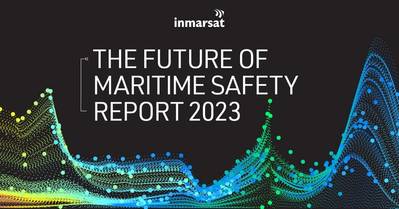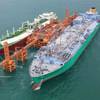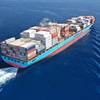Inmarsat Report Identifies Deficiencies in Safety Culture
The 2023 edition of The Future of Maritime Safety Report from Inmarsat Maritime, a Viasat business, reveals that the number of distress calls from ships at sea remains high, despite a continuing decline in vessel losses. The new report, which analyses Global Maritime Distress and Safety System information captured by Inmarsat, registered 853 distress calls from January to December 2022 – up from 794 in 2021.
With the number of losses of vessels over 100 gross tonnage (GT) falling by 65% in the last decade, the report highlights that figures for marine casualties and incidents reported remain stubbornly high. Over the last four years, distress signals registered over Inmarsat RescueNET averaged 810 per year.
According to Lloyd’s List Intelligence data, the most common causes of casualties in 2022 were recurring issues including machinery damage, collision, fire and explosion, and grounding. Based on a new methodology from data analysts at supply chain consultancy SeaFocus, the 2023 edition of The Future of Maritime Safety Report compares datasets across 12 vessel types and multiple years to identify variations, establish trends and assess shipping’s safety issues with precision. Its commentary adds insights from three Inmarsat roundtable meetings, which considered technology, regulation and the human element respectively.
The Future of Maritime Safety identifies deficiencies in industry attitudes and approaches towards safety, including an inadequate top-down safety culture, siloed data that is seldom shared, over-emphasis on human error, poor conditions for seafarers, and the perception of safety as a tick-box exercise. To improve standards and reduce the human, environmental and financial impact of marine casualties, the report calls for cooperation and collaboration built on solid data and the collective desire to manage risk to the lowest practicable level.
Peter Broadhurst, Senior Vice President, Safety and Regulatory, Inmarsat Maritime, said “As data in this report shows, we see the same safety incidents repeated time and again, year after year. While the rapid changes ahead pose challenges, they also afford us a great opportunity: to not simply try to maintain levels of safety, but to improve them. Learning from trends revealed in the oceans of data we have access to is essential.”
Specific measures proposed include the proactive use of safety data and reports to tackle the root causes of repeated and well-known issues and the creation of a standard international marine casualty and incident dataset. The report recommends anonymizing incident and casualty data to overcome prevailing unwillingness to share data due to commercial sensitivities and reaching a consensus on standard data points to monitor.
“We have the data but need to find ways to harmonize its collation and employment to tackle safety deficiencies head-on,” commented Broadhurst. “Let’s change the narrative from a culture of commercial and personal secrecy out of fear of competition and punitive measures to one of transparency and acceptance of safety-related change. In this way, we can better protect seafarers, vessels and the environment and ensure that safety keeps pace with other aspects of a sustainable transition that is steering shipping towards a new dawn.”











